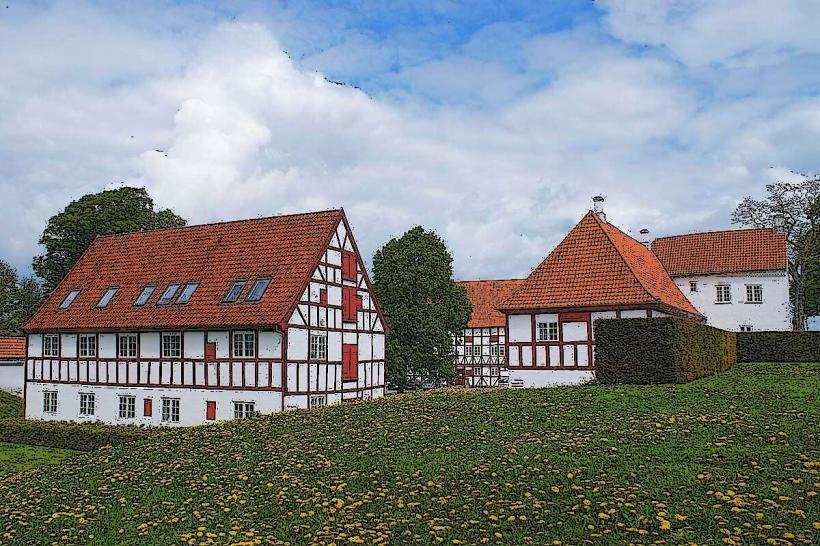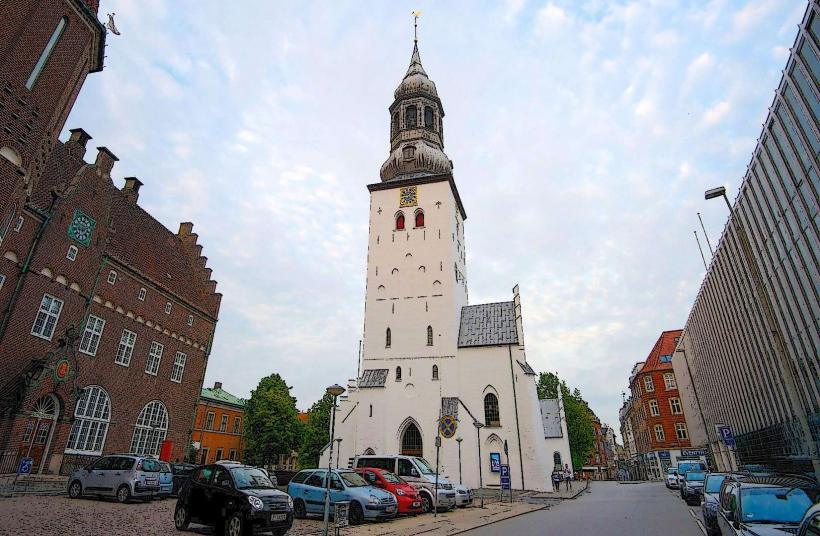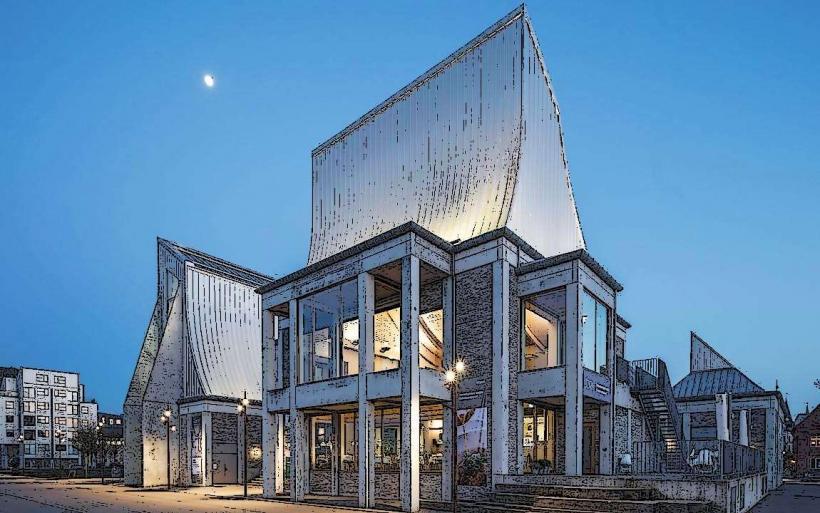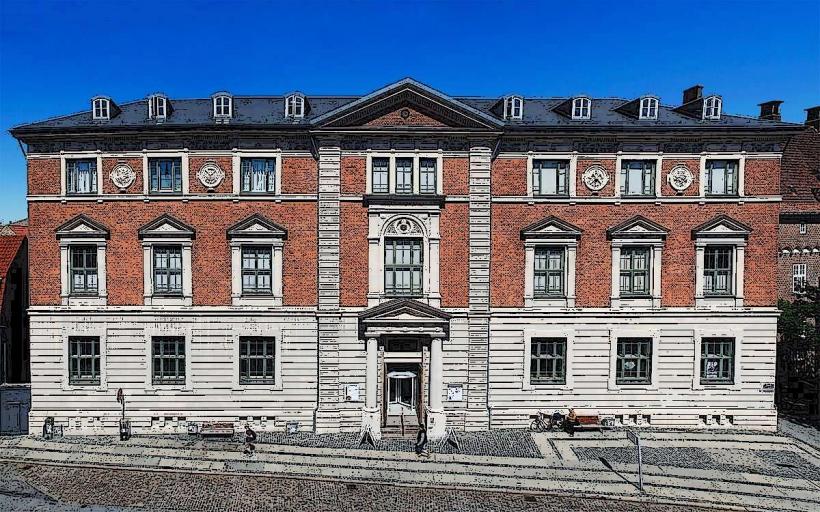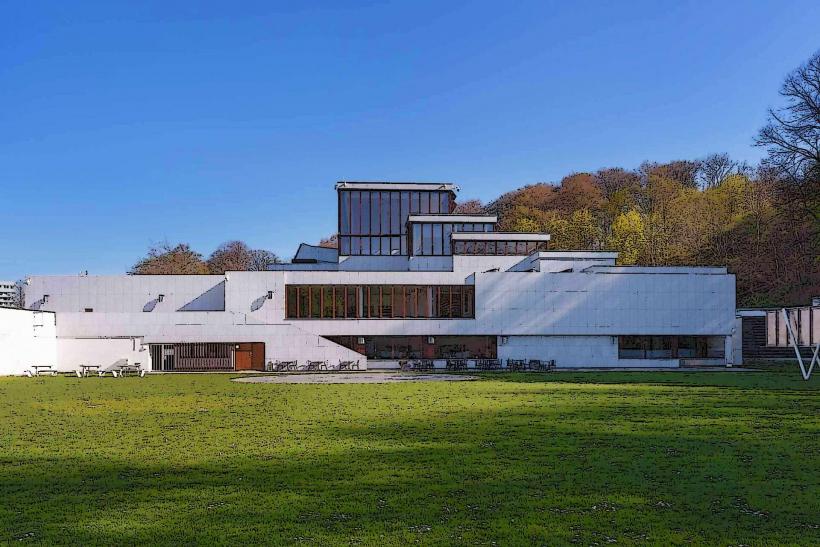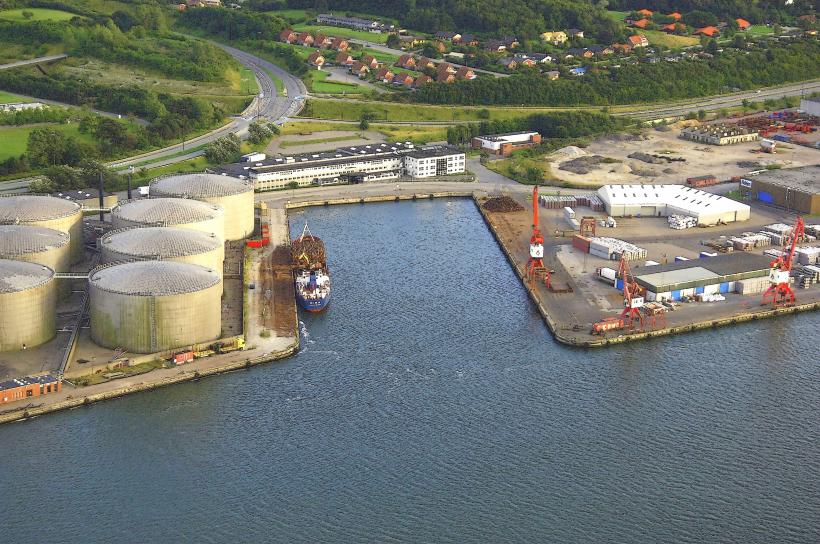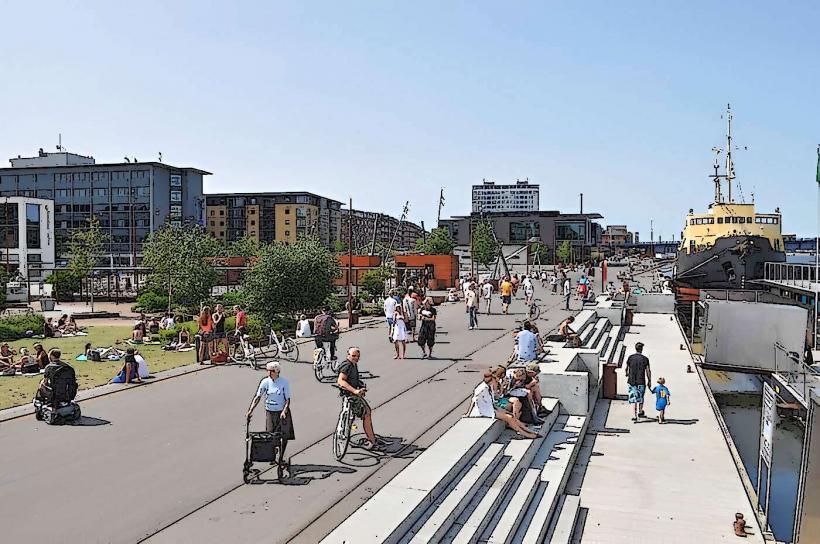Information
Landmark: Aalborg UniversityCity: Aalborg
Country: Denmark
Continent: Europe
Aalborg University (AAU) is one of Denmark's leading universities, located in the vibrant city of Aalborg, Denmark. Founded in 1974, it has grown into a prominent institution known for its high-quality education, cutting-edge research, and strong ties to industry and international collaboration. Aalborg University is particularly renowned for its focus on problem-based learning (PBL), which encourages students to engage with real-world issues from the outset of their studies.
Overview:
- Location: Aalborg University is primarily based in Aalborg, with campuses also in Esbjerg and Copenhagen. The main campus in Aalborg is located in the northern part of the city, near the Limfjord, offering a picturesque setting for students.
- Founded: The university was established in 1974, initially focusing on engineering and technical disciplines. Since then, it has expanded its offerings to a wide range of fields, including social sciences, humanities, and health sciences.
- Student Population: Aalborg University has a diverse student body, with around 20,000 students enrolled across various programs, including undergraduate, graduate, and Ph.D. students. The university also attracts a significant number of international students, thanks to its strong emphasis on global education and research collaboration.
Academic Structure:
AAU offers a wide range of academic programs, including undergraduate, graduate, and doctoral degrees in various fields. Some of the key areas of study at Aalborg University include:
Engineering and Technology:
- Aalborg University is well-known for its engineering programs, particularly in electronics, computer science, civil engineering, and renewable energy. It has strong ties to the industry, allowing students to gain practical experience alongside their academic studies.
- The university is a leader in renewable energy research, and its engineering programs are highly regarded both in Denmark and internationally.
Social Sciences and Business:
- AAU offers comprehensive programs in social sciences, including business administration, political science, sociology, and economics. The university emphasizes interdisciplinary collaboration, preparing students for complex challenges in modern society.
- Its business programs are particularly focused on entrepreneurship and innovation, providing students with the tools to succeed in the global business environment.
Health Sciences:
- Aalborg University has a strong presence in the health sciences, offering programs in fields like medicine, health management, and public health. The university’s research in this area focuses on improving healthcare delivery and health outcomes through innovation and technology.
Humanities and Education:
- The university offers a variety of programs in the humanities and education, exploring topics such as languages, communication, cultural studies, and psychology. AAU's approach in these fields is often interdisciplinary, allowing students to study complex social issues from multiple perspectives.
Problem-Based Learning (PBL):
Aalborg University is widely known for its distinctive approach to education through Problem-Based Learning (PBL), which is integrated into nearly all academic programs. This teaching method encourages students to engage with real-world problems early in their studies and work collaboratively to find solutions. Key features of the PBL approach include:
- Project-Based Learning: Students work in groups on real-life projects that require them to apply theoretical knowledge to practical problems. This hands-on approach helps students develop critical thinking, teamwork, and problem-solving skills.
- Interdisciplinary Focus: Projects often involve students from different academic disciplines, fostering collaboration and a broad understanding of the issues at hand.
- Research and Innovation: PBL encourages students to engage in research and innovation, making the learning experience more dynamic and relevant to contemporary challenges.
Research and Innovation:
Aalborg University is a leading institution for research and innovation, with a strong focus on addressing global and societal challenges. Key research areas include:
- Renewable Energy: AAU is recognized for its pioneering work in renewable energy, particularly in wind energy, sustainable energy systems, and energy storage. The university has strong collaborations with the energy industry and government agencies to drive the transition to more sustainable energy solutions.
- Engineering and Technology: In addition to renewable energy, AAU has strong research programs in areas such as robotics, artificial intelligence, nanotechnology, and ICT.
- Health Sciences and Biomedical Engineering: The university focuses on healthcare innovations and biomedical engineering, striving to develop new technologies and approaches to improve healthcare services.
- Social and Behavioral Sciences: Research in social sciences at AAU addresses topics such as sociology, sustainable development, and psychology. The university aims to contribute to societal well-being through its research and public policy work.
International Collaboration:
Aalborg University is committed to international cooperation and has partnerships with universities and research institutions around the world. These partnerships allow for:
- Student exchange programs with universities in Europe, North America, and Asia, enabling students to gain international experience and cultural exchange.
- Research collaborations with leading institutions globally, contributing to groundbreaking work in various fields, including technology, health, and the environment.
- The university also offers English-taught programs, making it a popular destination for international students.
Campus and Facilities:
- Main Campus: The main campus in Aalborg is modern and equipped with state-of-the-art facilities, including lecture halls, labs, and research centers. The campus is designed to foster collaboration and innovation, with open spaces and student-centered areas.
- Esbjerg and Copenhagen Campuses: Aalborg University has additional campuses in Esbjerg and Copenhagen, which focus on specific fields such as energy and business.
- Student Life: The university has a vibrant student community, with various student organizations, clubs, and activities. The Aalborg Student Union (Aalborg Studenter Union) plays a key role in organizing events, providing student services, and advocating for student rights.
Aalborg University’s Impact on the City:
Aalborg University has a significant impact on the city of Aalborg, both economically and culturally. The university attracts students and researchers from all over the world, contributing to the city’s status as a vibrant, international hub of education and innovation.
- The university’s research and development activities have strengthened Aalborg’s position as a center for technology and renewable energy.
- Aalborg University has strong ties with local businesses and industries, contributing to the development of new technologies, startups, and economic opportunities in the region.
Conclusion:
Aalborg University is a leading institution in Denmark and an important player in the global academic and research community. With its focus on Problem-Based Learning (PBL), innovative research, and international collaboration, the university provides students with an education that is both relevant and future-oriented. Whether in engineering, social sciences, health, or the humanities, Aalborg University continues to make a significant impact through its dedication to addressing real-world challenges and advancing knowledge across multiple fields.




